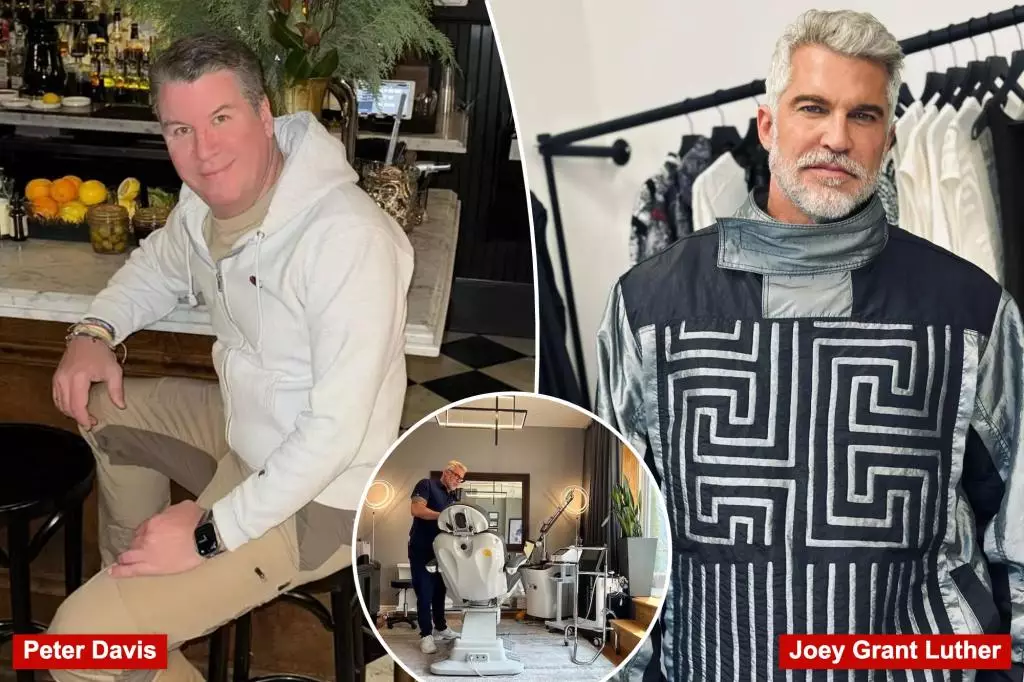The recent arrest of Joey Grant Luther, a dermatologist who allegedly administered counterfeit Botox injections, has reverberated throughout affluent social circles. Known for catering to a clientele that spans celebrities and socialites, this scandal has unveiled disturbing elements regarding the unregulated world of cosmetic procedures. While Luther’s legal woes have dominated headlines, the implications of his actions extend far beyond a mere arrest; they beckon a deeper discussion about the risks associated with unlicensed aesthetic treatments.
Luther’s operations were characterized by the promise of cheap yet effective cosmetic enhancements primarily derived from unverified sources. Reportedly, he imported botulinum toxin from China, ultimately endangering the health and safety of his patients. Allegations of discomforting side effects ranging from double vision to serious heart complications illustrate not only the potential hazards of unregulated medical procedures but also the alarming trust that clients placed in someone without proper credentials. The emerging support group dubbed “Former Lutherans” indicates a broader concern — a community seeking solace and shared experiences in the wake of a terrifying reality.
In society’s relentless pursuit of youth and beauty, many individuals are lured into making questionable choices for quick fixes. Peter Davis, editor-in-chief of Jetsetting Avenue magazine, candidly shared his experience as a former client of Luther’s, highlighting the irony of paying for potentially harmful customs under the guise of aesthetic enhancement. His account serves as a sobering reflection of how easily individuals can be deceived by the promise of a smooth forehead, particularly when it is endorsed through social circles.
Davis’s tongue-in-cheek commentary about his survival from such ventures, juxtaposed with the serious consequences faced by other patients, further complicates the narrative. What resonates through these experiences is a collective naivety; clients, attracted by the allure of discounted services, often overlook essential questions regarding the legitimacy of the providers. Davis’s remark about the “good deals” that drew him to Luther’s practice serves as a cautionary tale, emphasizing that affordability should not overshadow essential qualifications and ethics.
Community Shock and Support Networks
In the wake of the scandal, former clients are not just processing feelings of betrayal but are actively engaging in community support systems. The emergence of the “Former Lutherans” group reflects a broader trend in the aftermath of malpractice in any field—survivors seek to ally with others to share insights, validate experiences, and compile resources for prohibited or harmful practices.
In a world where the aesthetics business is flourishing, yet largely unregulated, it is vital for patients to prioritize due diligence over social endorsements and impulsive choices. Recommendations should carry weight while understanding the importance of verifying the legitimacy of medical practitioners. The movement led by former Luther clients reinforces the need for vigilance and community support against predatory practices lurking within the glamour of the cosmetic industry.
Joey Luther faces serious charges, including wire fraud and the distribution of counterfeit drugs, illustrating the severe legal ramifications for infringing on healthcare regulations. This case underscores the necessity for rigorous enforcement of licensing and medical standards in aesthetic procedures. The repercussions of Luther’s actions extend beyond his prison sentence; they evoke essential dialogues about governmental oversight and the responsibility of state regulators in safeguarding public health.
Moreover, the potential for long-term psychological impacts on his clients can be just as damaging as their physical detriments. The notion of having trusted an unlicensed professional for personal enhancements can lead to profound feelings of vulnerability and betrayal. Consequently, this incident not only serves as a wake-up call for potential patients but also for the aesthetic industry to fortify its commitment to ethics and accountability.
The Joey Luther debacle is a reflective moment for an industry often marred by quick fixes and superficiality. As the allure of aesthetic enhancements continues to grip society, it acts as a reminder of the paramount importance of diligence and education in making informed decisions. Ensuring that one’s safety and health precede the quest for beauty is not just advisable; it is essential. This scandal encourages consumers to critically evaluate service providers, raising the bar for ethical practice in an industry where regulation is imperative.

